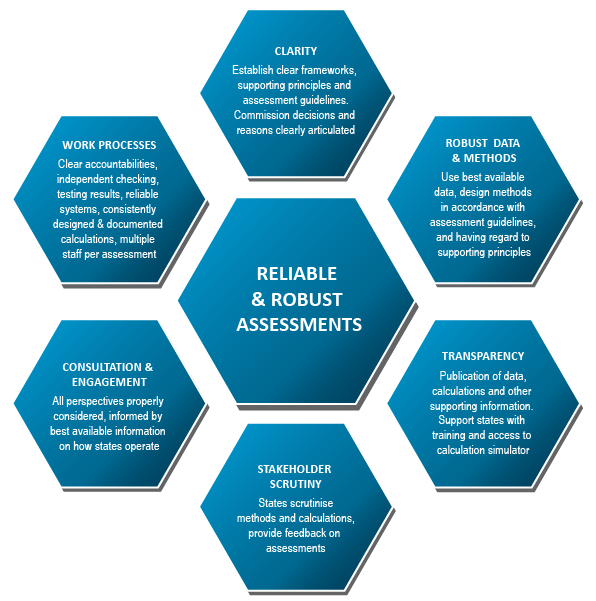Quality Assurance Framework
The Commission is committed to robust quality assurance processes to support the reliability of its assessments of state fiscal capacities, and promote confidence in the processes for determining those assessments.
A foundation of the framework is ensuring clarity in the objectives, supporting principles and guidelines underpinning the Commission’s work. Against this architecture, clearly articulating the Commission’s decisions and reasons for those decisions provides clear information to stakeholders on the basis for the Commission’s assessments. Ensuring robust assessment methods using the best available data gives stakeholders confidence that the Commission’s calculations are soundly based. To support this, in some circumstances external experts may be engaged to evaluate assessment methods or to provide independent research and analysis. Stakeholder scrutiny is an important safeguard as states are well-placed to critically examine the Commission’s work and provide feedback. The Commission is committed to supporting this scrutiny by being transparent in its decisions, providing access to assessment calculations and other supporting information, providing training to state officials, and being available for discussions with states as required. Close consultation and engagement with the states ensures their perspectives are properly considered and that the Commission is informed by the best available information on how states operate. Quality assurance is also supported through the design and implementation of relevant work processes including ensuring calculations are consistently designed and well documented; having multiple staff involved on each assessment; appointing a quality assurance steward to lead assurance efforts, undertaking routine (and, where possible, independent) checking of calculations; testing assessment results against the relevant economic and social context; and investing in reliable technology and systems to manage data and calculations. |

